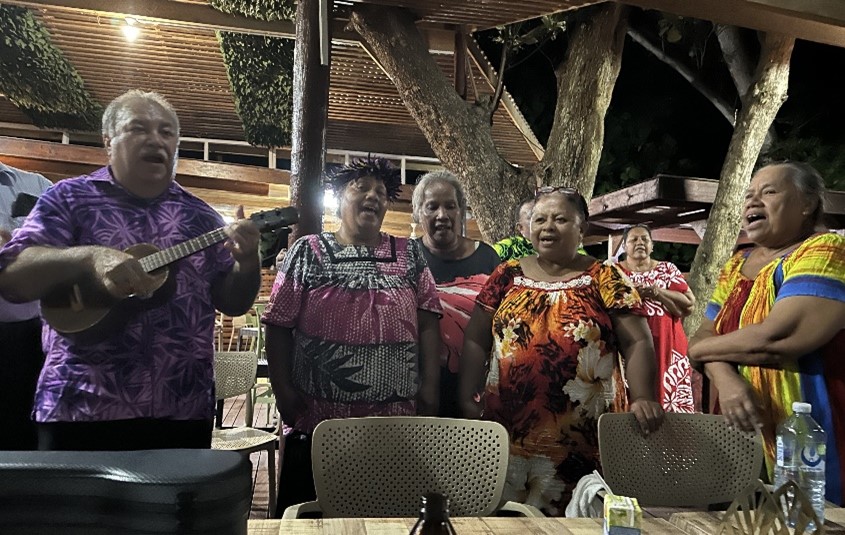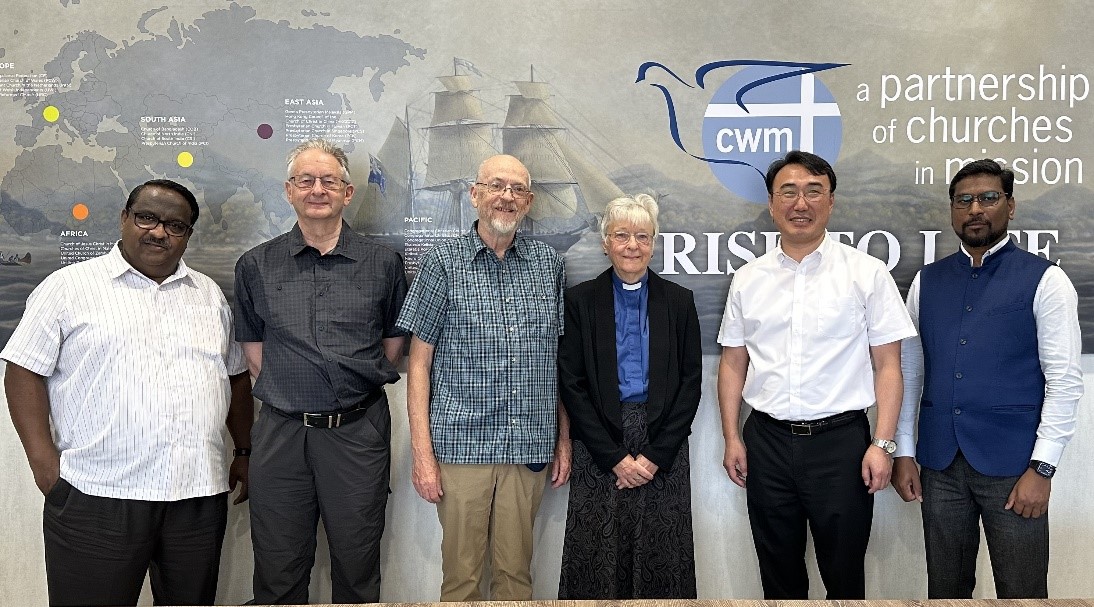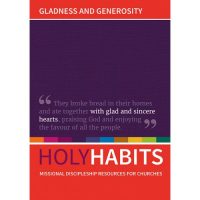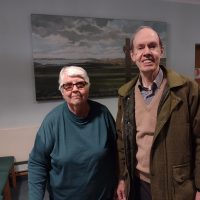My father, Clifford Welch, was a London Missionary Society missionary in Nauru, from 1936 to 1941. When the Japanese invaded Nauru, he was evacuated to Auckland, where he worked as a Congregational minister until around 1947 when he returned to the UK, and met my mother. They married and my brother, Lawrence and I were born in the early 1950’s. My father then went to work with the Congregational Church in South Africa, where we grew up.
We had not visited Nauru and New Zealand before, so Peter and I, together with my brother Lawrence, decided that it would be a good idea to go back to the places where my father had been, and learn more about his early life in Christian service (in his 20’s and 30’s).
We began the trip by going to Singapore, to visit the headquarters of the Council for World Mission, the successor body to the London Missionary Society. We received a warm reception from the General Secretary and two of the senior officers and were interested to hear more about the current work of CWM, including such issues as anti-slavery.
We then headed off to Nauru, the world’s third smallest country, with a population of 16,000, 80% of whom are Christian – the majority in the Congregational Church, for which Clifford worked. Their welcome and hospitality was amazing, for us who were strangers, and connected to a missionary who most of them did not know.

One of their minister’s was allocated to take us round the island in the daytime. Then there was a big dinner laid on for us at a different church each evening, accompanied by singing from the local church’s musicians, of all ages.

It was good to see signs of recovery from the environmental devastation caused by phosphate mining. But like other Pacific islands, Nauru is vulnerable to the sea level rise associated with climate change. We were interested to hear of their plans to move homes and infrastructure from the densely populated coastal strip to the much higher inland areas. We also heard that Nauru imports around 90% of its food (mainly from Australia) which is another vulnerability in the face of climate instability.
We were only on Nauru for a week, and could easily have stayed longer. I felt I learnt from the Christian presence on this small island about the extensiveness of their hospitality to strangers, the wide inter-generational life of the church, the role of music offered by groups of singers and musicians at each of their dinners. All this was deeply rooted commitment to the Christian faith enabling it to be such a visible presence across the island. The church’s faithfulness to the Christian life, alongside the presence of all ages in each church, was very moving. It felt like we were in a country from which we could learn much more about the living out of the Christian faith, rather than just visiting a country which had received the faith from the UK.
Our next stop was Fiji, in order to spend time with our friends and fellow URC ministers, Mark Meacher & Melanie Smith at the Pacific Theological College.
The Pacific Theological College trains students from across the Pacific, including those who are interested in undertaking PhD’s. Most of the students are older and come with a great deal of experience of their churches and home countries. The College describes itself as ‘the only ecumenical and first regional degree offering institution of the Pasifika churches, offering to both lay and ordained candidates theological and ecumenical formation that is justice-driven and communities-based.’ Mark and Melanie play key roles in taking this work forward, alongside the other staff from different backgrounds and traditions and countries.
I led worship and presented a paper on the Holy Spirit. Peter sat at the feet of South African ecotheologian and visiting lecturer, Ernst Conradie.
So far, the trip had been somewhat full-on, with too little time to adjust to the time differences, so some recreation in New Zealand seemed ideal. We booked on a tour of the North Island, visiting lots of beautiful places in a luxury bus, including Hobbiton, of Lord of the Rings movies fame.
We returned to Auckland to see more of the city and to pursue my father’s elusive path. The church where he was minister is now a ‘venue’ but we weren’t able to see inside or to find more information about what goes on there. It felt like the church in New Zealand was very different from the church in Nauru, in that it was facing the same issues of decline as we face in the UK.
We enjoyed a visit to Glendene church where we met James Chamley, now well on into his nineties, who remembered my father (and his first wife, who sadly died when they were in New Zealand) from his youth.
The final leg of our journey was to visit friends in Australia, including going to Adelaide, to visit Rod Boucher and his wife Vivi along the coast at Aldinga Beach. Rod was the main musician at Clapton Park United Reformed Church while we were there, and wrote several songs which are still being regularly sung in church.
We also met several of their offspring who we knew in the church in Hackney, and some friendly koalas who we met for the first time. This made a wonderful climax to our trip!
Revd Dr Elizabeth Welch





